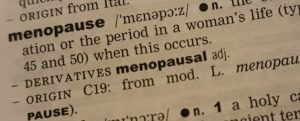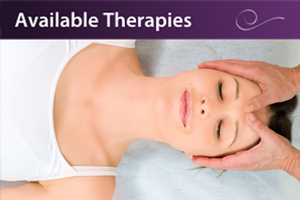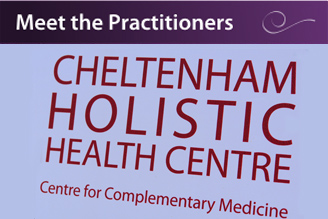What is the menopause?
The menopause is a natural part of a woman’s life cycle. With the ageing process, our oestrogen levels decrease and periods become less frequent until they stop altogether. Oestrogen is the hormone that regulates a women’s periods. This process can take many years and symptoms may appear gradually. This gradual change is called the peri-menopause.
When does it happen?
The menopause usually occurs around the ages of 45 to 55. The average age is 51. In some cases, it might start as young as young as 30. This is known as a premature menopause
Signs and Symptoms
Some women will pass easily through the menopause, but most will experience some of the symptoms to a greater or lesser degree. Symptoms arise because of the loss of oestrogen, which happens with the ageing process. Symptoms may also be affected by diet and lifestyle.
It is also thought that the more out of balance the body is, the worse the symptoms will be. These imbalances may have occurred due to diet, exercise and lifestyle.
Here are some of the most common symptoms:
- Changes to periods: The flow and frequency of your periods may change.
- Hot flushes: This is the most common symptom and occurs in about 3 of every 4 women going through the menopause. Some women say that the description of ‘hot flush’ doesn’t do justice to what happens. Many liken the experience to being placed in a hot furnace. In some women, this can occur many times throughout the day. Sometimes these hot flushes occur at night and are known as night sweats.
- Insomnia: This may be as a result of night sweats which disturb sleep.
- Vaginal dryness: The lack of oestrogen means that the skin and support tissues of the vagina become thinner and less elastic, and also for the vagina to become dry. This can cause irritation and itchiness. There may also be discomfort during sex.
- Low mood, anxiety, irritability: Oestrogen can also affect the brain, which has an effect on emotional well-being. Symptoms such as mood swings, anxiety and irritability may occur. There may also be difficulty in concentrating and forgetfulness.
Conventional Treatment
The most common treatment is Hormone Replacement Therapy (HRT). This can take the form of tablets, cream or gel, a skin patch or an implant. It works by replacing oestrogen and so relieves the symptoms that are caused by decreasing levels of oestrogen.
However, the side effects of HRT include weight gain, breast tenderness, nausea, headaches and mood changes. It is not recommended for women with a history of stroke or deep vein thrombosis, breast or endometrial cancer, or severe liver disease.
There is conflicting evidence as to the long-term safety of HRT. Some studies suggest an increase in the risk of breast cancer and heart disease. Other studies show that it is safe and that these results are over-estimated.
Menopause should not be seen as a loss of youth but rather as the potential gaining of wisdom and spiritual power. Flaws B (2005)
Acupuncture and the Menopause- How can I help you?
Many women are looking for alternative ways to help them with the symptoms of menopause; acupuncture is a natural way that many are choosing. Acupuncture works with the body. I look at where there are patterns of imbalance and work to address these by inserting needles into carefully chosen acupuncture points. In this way, we bring about balance to the body which enables the body to heal itself, alleviating the symptoms you may be experiencing. You may also feel more positive and able to embrace the journey that you are on!
Ideally you would make changes to your diet and lifestyle and start a course of acupuncture prior to this stage of your life, before the symptoms arise. Prevention is always better and we look to create balance, putting your body in the best possible place for an easy transition through this phase of life.
What can you do to help yourself?
Diet and Lifestyle
- Eat a healthy, balanced diet: Avoid sugary processed foods that causes your blood sugar to spike. Keeping insulin levels stable can prevent or alleviate some of the symptoms.
- Exercise: or simply move more! A sedentary lifestyle can have a very negative impact on your health and well-being. There are many apps and devises, such as step counters, that can track your movement throughout the day.
- Rest and relaxation: Our modern lifestyle can be very stressful. We are constantly available. Giving time, even 10 minutes a day, to some sort of resting activity such as mediation or mindfulness exercises can have a really positive effect on health and well-being. You will then be in a better place to deal with the stresses in your life. Again, there are many apps available to help you with this.
Whatever choice of treatment you make, I would always suggest that you look at all of the evidence, weigh up the pros and cons, and make an informed decision that is right for you.
Please contact me if you would like any further information or if you would like to book an appointment.










